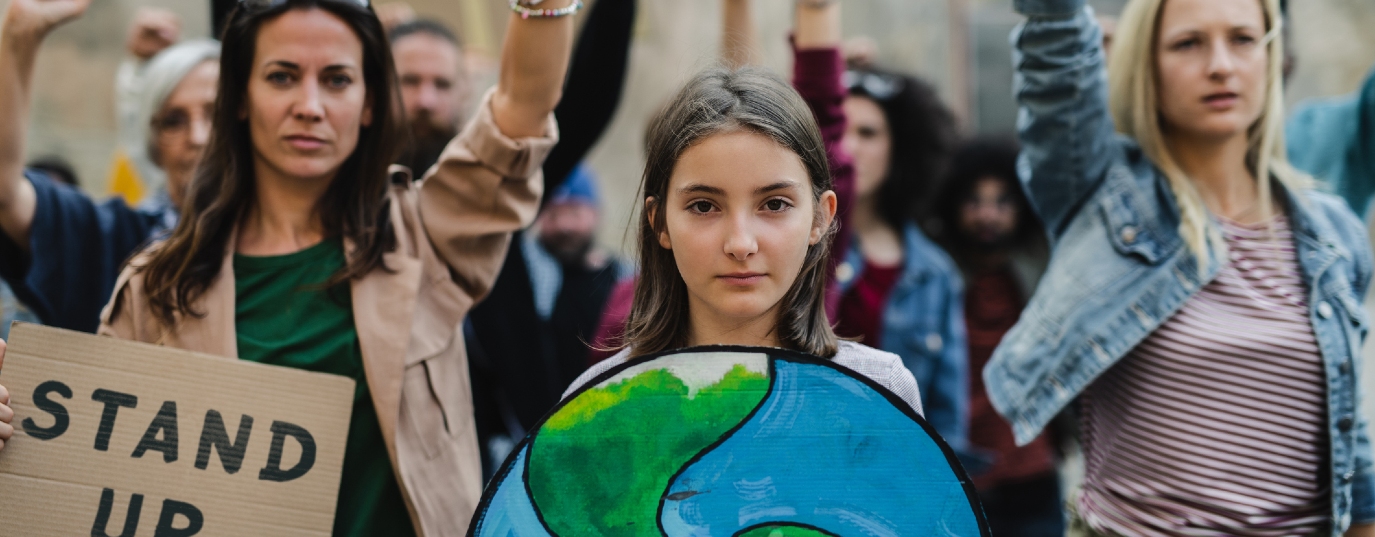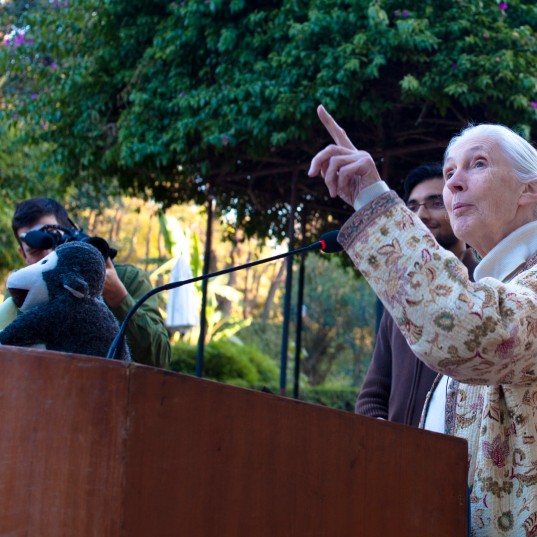Beyond Greta Thunberg: The women fighting against climate change
Women and girls are particularly vulnerable to the impacts of climate change. Fortunately, many of them are leading in the fight to protect the planet and ensure a sustainable future.
8 March is International Women's Day. This day serves to remind us that gender equality is not only a fundamental human right, but one of the essential pillars for building a peaceful, prosperous and sustainable world. Nonetheless, even though the world has made unprecedented progress, the United Nations says that no country has yet managed to achieve gender equality.
At Sustainability for all we want to use this day to highlight women's role in the fight against climate change, A movement in which women have had a pivotal role. Our list is by no means exhaustive. Paying homage to all the activists, scientists and leaders who have worked towards climate and environmental justice would require much more than just one article. However, each of the stories we share with you below are of unquestionable significance for the sustainable development of the planet.
Rachel Carson
Rachel Carson was a marine biologist and writer who published Silent Spring in 1962. This work denounced the dangers of chemical pesticides and led to the banning of DDT and other pesticides in the United States. She was also among those responsible for the creation of the U.S. Environmental Protection Agency (EPA). Thanks to her, the celebration of Earth Day was also introduced.
 Jane Goodall
Jane Goodall
With six decades of work behind her, Dr Jane Goodall has not only shown us the urgent need to protect chimpanzees from extinction, but she has also redefined species conservation to consider the needs of the local population and the environment. Today, she travels around the world talking about the threats chimpanzees are facing and environmental crises, urging each of us to act on behalf of all living beings and the planet that we share with them.
Wangari Maathai
Wangari Maathai was a Kenyan environmental and political activist. After graduating in biology in the United States, she returned to Kenya to begin a career compounding both environmental and social issues. Maathai founded the Green Belt Movement in Africa and helped plant more than 30 million trees, providing work to the unemployed while avoiding soil erosion and desertification. She was appointed Assistant Minister for the Ministry of Environment and Natural Resources and in 2004 Maathai received the Nobel Peace Prize while continuing to fight for women's rights and the environment.
Fabian Dattner
Dattner has led the conversation around leadership and social change since the late 1980's, advocating for the inclusion of women. She is one of the founders of Homeward Bound, a project that trains professional women from scientific and technological backgrounds to step up as leaders in the fight against the climate crisis. It was officially launched in 2016 with an ambitious goal: to connect, within the next 10 years, a network of 1000 women who are properly equipped with the tools and strengths to lead policies, research projects and alternative practices to ensure a more sustainable world.
Sheila Watt-Cloutier
Sheila Watt-Cloutier is one of the most prominent advocates of the economic, social and cultural rights of the Arctic's Inuit. As the elected representative of her people, as an administrator and advocate, Watt-Cloutier contributed significantly to the adoption of the Stockholm Convention and, as such, the restriction of Arctic pollution. Through her work, the conversation around climate change has changed. Watt-Cloutier and 62 Inuit hunters and elders from communities in Canada and Alaska submitted a petition to the Inter-American Commission on Human Rights (OAS), arguing that uncontrolled greenhouse gas emissions from the United States had violated Inuit cultural and human rights.
Inger Andersen
She is the current Executive Director of the United Nations Environment Programme. The Danish economist and environmentalist began her work to save the planet in 1987, when she joined the United Nations Sudano-Sahelian Office to look for solutions to the famine and drought affecting the world’s most impoverished areas.
Vandana Shiva
Among the world's leaders in environmental activism is ecofeminist, philosopher and doctor of physics, Vandana Shiva. The author of numerous books on nature protection, she is also one of the founders of the gender team at the International Centre for Integrated Mountain Development and the Women's Environment & Development Organization. Shiva has dedicated her entire life to environmental conservation, an effort for which she has been awarded, among others, the Right Livelihood Award, often considered the 'alternative Nobel prize'.
Emily Penn
Emily Penn was already a successful sailor when she took on the challenge of tackling ocean plastic. She decided to combine her two great passions and began a series of trips with the intention of showcasing the impact of plastic pollution.
Penn co-founded eXXpedition and, with a crew composed exclusively of women, carried out pioneering expeditions to investigate the causes and solutions to plastic pollution of the ocean.
Isatou Ceesay
Isatou Ceesay, nicknamed the 'queen of recycling', is a Gambian activist who initiated the One Plastic Bag recycling movement in Gambia. Ceesay works to educate citizens about recycling and reducing the amount of waste they generate. She founded a project that makes plastic yarn and bags made out of recycled waste. Her project has not only drastically reduced the amount of waste from her village, but also employs hundreds of West African women, providing them with a monthly income.







